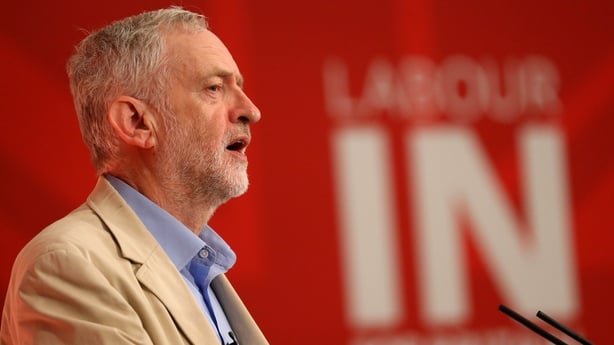In the normal course of events all of the major British political parties would sit back in the coming weeks to analyse the results of recent the Assembly, local and Mayoral elections. Celebrating, contemplating or consolidating.
But there’s no time for that now, because there’s another battle to fight and, as we are constantly reminded, it’s the biggest political decision British voters will face in a generation.
23 June is EU referendum day and the countdown is no longer taking place in terms of weeks or months, but days.
If you try the read the runes of what the referendum result might be, based on these most recent elections, you might not get very far though.
However, that is just what RTÉ's London Correspondent Fiona Mitchell is about to do.

For a party that has been in power for six years now and is tearing itself apart over Europe, the Conservatives did not do too badly.
There were losses of course, but nothing catastrophic and enough good news for the party to be able to spin the results in its favour.
Beating Labour for second place and title of main opposition party in Scotland has provided the Tories with a lot of succour.
But it doesn’t provide us with much clarity on what that might mean for the Brexit referendum, since the Tory Party is split on the issue. In
fact the two main figureheads for the Leave and Remain side both come from the same party. That means that if you voted Tory in the local or Assembly elections, it still can’t be predicted which way you would choose to vote on Europe.
The Labour Party had been expected to have a very bad election. Electoral wipeout, the worst results in 35 years, a drubbing from the electorate - and a significant amount of that talk came from Labour MP’s themselves.

Many Labour MP’s remain unhappy (in some cases much stronger, and less Parliamentary, language should be applied) with the party leader, Jeremy Corbyn.
Mr Corbyn - elected by a huge majority of Labour members - has not had the easiest run into this election.
In recent weeks he has launched an inquiry into allegations of anti-Semitism in the party, suspending once of his oldest friends and closest allies, Ken Livingstone, from the party on the same issue.
When the results came in from the local elections the words of Mr Corbyn were ‘we hung on’. Not exactly the post-election rallying call of which every politician dreams.
He could hail it as an achievement since expectations had been so low. Losses yes, but not as many as predicted. But no gains, which every newly elected opposition leader in the last fifty years has enjoyed in the local elections.
And a terrible result in Scotland where the Conservative Party beat Labour into third place after the Scottish National Party.
Its biggest success was the convincing majority by which Sadiq Khan wrested the London Mayor role from the Conservative Party. But Mr Khan could not be more obvious about keeping Jeremy Corbyn at arm’s length, clearly marking the success as something achieved in spite of Mr Corbyn rather than because of him.
But what of Europe? There, the Labour Party shares the Tory conundrum. Labour is also split on the In Out referendum. Not in as large numbers as the Conservatives perhaps, but split nonetheless, and many are unconvinced by Mr Corbyn when he say he supports a vote to stay.
He has never in his political career been a cheerleader for the EU - and his recent speech in favour of a remain vote spent as much time complaining about what the EU does wrong as it did advocating staying within the union. So again, just because you voted Labour in this election doesn’t mean you’ll vote stay in the EU next time out.
In fact, if seeking clarity then perhaps UKIP is the most logical place to look in relation to the issue of the EU.
Withdrawal from the EU is the party’s raison d’être and it increased its vote share in the 5 May elections, taking seats in places like the Welsh Assembly for the first time ever.
That would suggest the party has tapped into a clearly defined anti-EU sentiment.
Once described by a Tory insider as a group of ‘swivel-eyed loons’, UKIP now takes voters from both the Conservatives and Labour.
Almost four million votes at the last general election suggest it has tapped into discontent across the political spectrum.
It’s hoping that it can continue to tap into that discontent and bring those voters onto the Leave side in the campaign.
But does voting UKIP at the local elections mean that people will also vote with them on Europe?
There’s a long way to go in this campaign yet…and with the Assembly, local and Mayoral elections out of the way, there’s now a lot more time for each side to focus on the fight.
The fight is not longer local, it’s now European.
